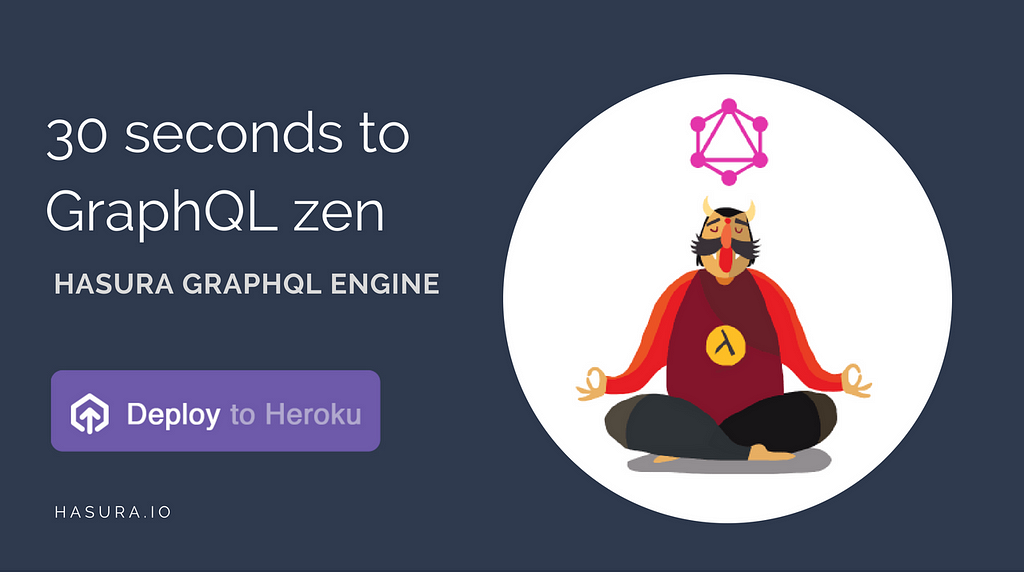Latest news about Bitcoin and all cryptocurrencies. Your daily crypto news habit.
 Get started with GraphQL in just 30 seconds with Hasura GraphQL Engine on Heroku
Get started with GraphQL in just 30 seconds with Hasura GraphQL Engine on Heroku
At Hasura, we have always been huge fans of Heroku’s git push based deployment workflow. All of our engineers have, at some point, had side projects running with Heroku, and one of our most popular open source projects, Gitkube, brings the Heroku workflow to a Kubernetes cluster.
Our aim with the Hasura GraphQL Engine is to help you setup a GraphQL server with the least amount of friction, so that you can start building applications without any setup. With that in mind, we present the Hasura deployment on Heroku’s free tier.
30 seconds to GraphQL zen!
Importing your own data
In case you already have data, Hasura allows you to import it and begin using GraphQL queries instantly. Here’s how:
(For this demo, we used the freely available Chinook data set)
Bonus: Connecting your existing Heroku Postgres
We designed Hasura to allow developers running existing Postgres based applications to migrate to GraphQL without having to write any backend code.
If you are already running on Heroku Postgres, Hasura can connect directly to give you GraphQL APIs. You can get step-by-step instructions here.
Architected for high performance
While designing Hasura, we had two objectives:
- Hasura should be able to run anywhere, from your local machine to the Heroku free tier to a server on Amazon, Google or Microsoft.
- You should be able to extract maximum performance/dollar.
Consequently, we optimised Hasura for low memory footprint & low latency.
 Hasura GraphQL Engine gives you ~600 req/s while consuming only 50 MB of RAM on Heroku’s free tier
Hasura GraphQL Engine gives you ~600 req/s while consuming only 50 MB of RAM on Heroku’s free tier
We have written about the design decisions involved in this blogpost.
🎉🎉Hasura GraphQL Engine is open source!🎉🎉
We have just open sourced the Hasura GraphQL Engine. Check out the complete repo on Github, and let us know your thoughts! We would love to hear from you- we are very active on our discord server.
Hasura gives you instant GraphQL APIs over any Postgres database without having to write any backend code.
If you would like to stay updated on all things Hasura, you can sign up for our newsletter.
Getting started with GraphQL APIs on Heroku was originally published in Hacker Noon on Medium, where people are continuing the conversation by highlighting and responding to this story.
Disclaimer
The views and opinions expressed in this article are solely those of the authors and do not reflect the views of Bitcoin Insider. Every investment and trading move involves risk - this is especially true for cryptocurrencies given their volatility. We strongly advise our readers to conduct their own research when making a decision.